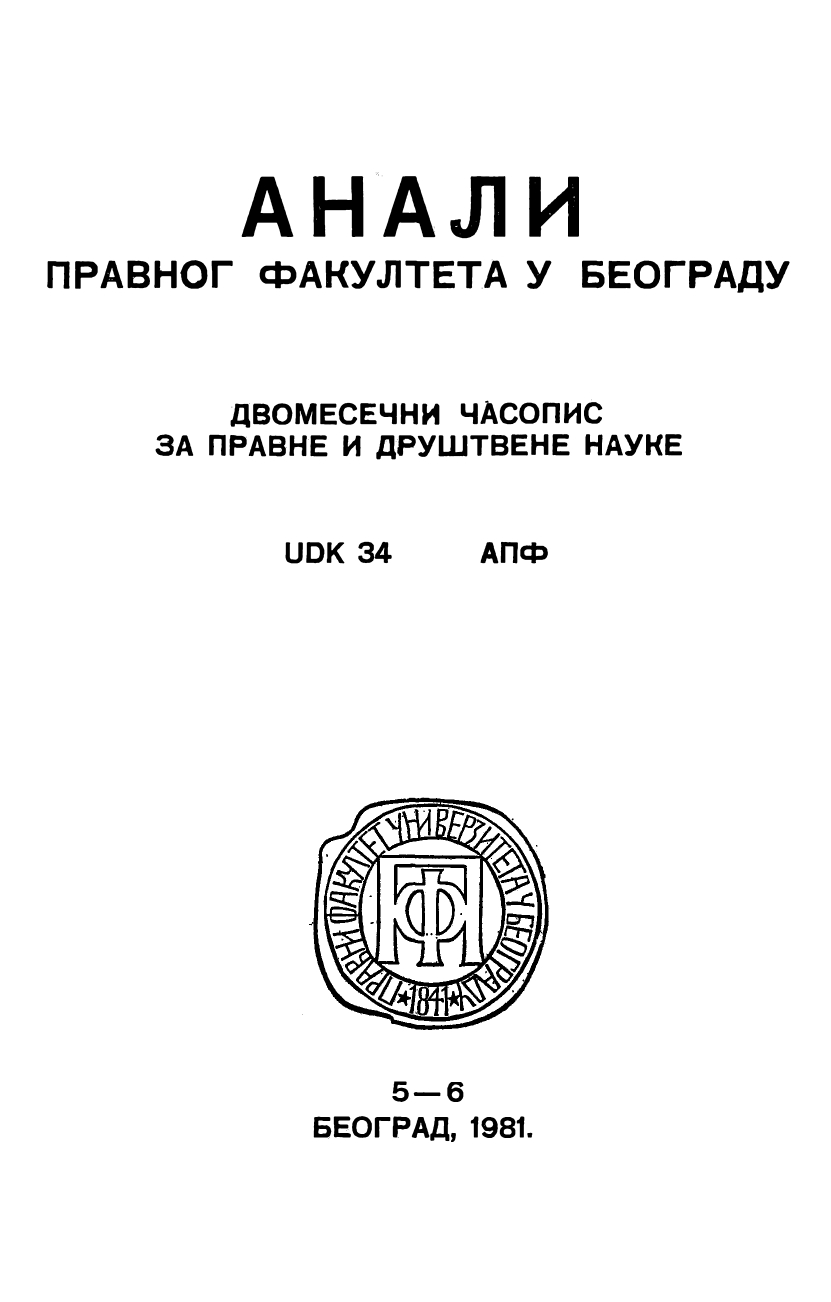СУДСКА ПСИХОЛОГИЈА И ЊЕНИ СОЦИЈАЛНО ПСИХОЛОШКИ ОКВИРИ
JUDICIAL PSYCHOLOGY AND ITS SOCIO-PSYНOLOGICAL SCOPE
Author(s): Mihajlo AćimovićSubject(s): Social Sciences, Law, Constitution, Jurisprudence, Psychology, Court case
Published by: Правни факултет Универзитета у Београду
Summary/Abstract: Judicial psychology, like social psychology, falls within the scope of psychological science. It utilises many achievements and concepts of general psychology as well as certain general methods of psychological science. The closest link between general and judicial psychology has been established through the study of testimony. But testimony, as a form of interaction, also falls into the domain of social psychology, which has very much in common with judicial psychology asitis. Judicial psychology to' a large extent falls within the scope of social psychology, with one part lying outside it. Social psychology deals with the study of the attitude (behavior) of the individual in society. The mutual ties of social psychology and judicial psychology are especially close because the group of participants of a judicial procedure corresponds to the socio- -psychological concept of groups. The number of participants is determined (fixed), they have their rules of conduct, the group has its own structure and relative duration, and it could also be that the members of the group have a unanimous goal. Their actions are coordinated toward the reaching of the verdict i. e. the pronouncing of the sentence by interaction and communication. The judicial procedure may be considered as a system of testimony and that system is almost identical with the system of communication of the group of participants in the judicial procedure, and to a large extent identical with the so-called interaction network, including other influences (impacts) besides communication. The group of participants in the judicial procedure is a formal group, the relations and tasks (assignments) are previously regulated, including those of the management of the group by the judge. Social psychology also deals with the study of attitudes, especially social attitudes, then the study of prejudices, perception and the judging of other individuals, and other questions, which are significant for judicial psychology as well, especially when these questions are discussed before the judge.
Journal: Анали Правног факултета у Београду
- Issue Year: 29/1981
- Issue No: 5-6
- Page Range: 267-284
- Page Count: 18
- Language: Serbian

